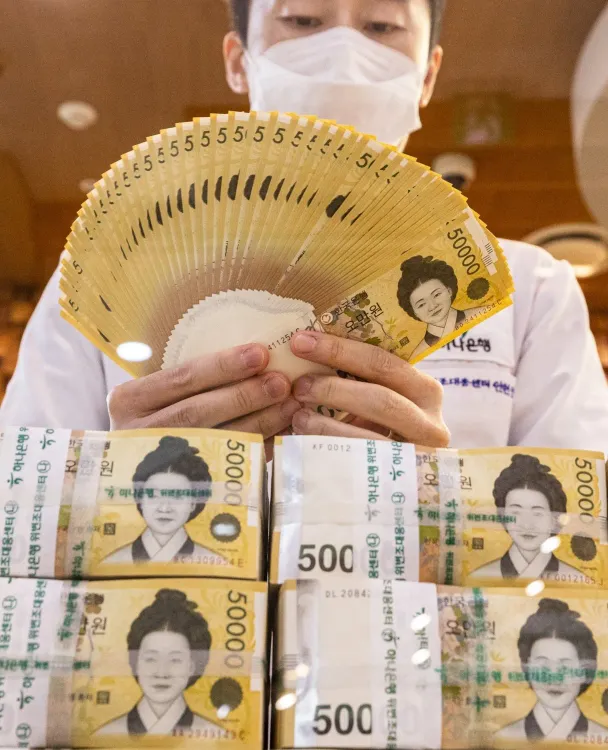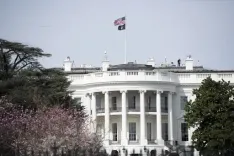Did Seoul Stocks Rise After US-China Trade Deal?

Synopsis
Key Takeaways
- South Korean stocks saw a slight increase following a US-China trade deal.
- The local currency sharply declined against the USD.
- The trading volume was moderate at 8.32 trillion won.
- Major companies had a mixed performance.
- Wall Street finished higher after the announcement.
Seoul, May 13 (NationPress) South Korean equities experienced a slight uptick on Tuesday following a pivotal trade agreement between the United States and China. Meanwhile, the local currency saw a significant drop against the US dollar.
The benchmark Korea Composite Stock Price Index (KOSPI) rose by 1.09 points, marking a 0.04 percent increase, and concluded at 2,608.42, building on the previous day's 1.17 percent surge, as reported by Yonhap news agency.
Trading activity was moderate, with a volume of 413.3 million shares valued at 8.32 trillion won (approximately $5.87 billion), where gainers narrowly outnumbered decliners at 450 to 418.
Both institutions and individual investors contributed to the daily downturn, selling a net of 100 billion won and 136.9 billion won, respectively, while foreign investors were net buyers, acquiring 174.1 billion won.
After high-level discussions over the weekend, Washington and Beijing reached an agreement to reduce reciprocal tariffs for a period of 90 days.
Wall Street responded positively to the news, with all three major indices closing higher.
The Dow Jones Industrial Average surged by 2.81 percent, the S&P 500 climbed 3.26 percent, and the Nasdaq composite jumped 4.35 percent.
In Seoul, however, the performance of major market players was mixed.
The leading battery manufacturer LG Energy Solution plummeted 2.95 percent to 312,000 won, and Samsung SDI slipped 2.29 percent to 170,900 won.
The defense conglomerate Hanwha Aerospace fell 1.95 percent to 804,000 won, while LIG Nex1 declined by 0.92 percent to 378,000 won.
LG Chem, a significant player in the chemicals sector, dropped 3.56 percent to 203,000 won, and the state-owned power company KEPCO fell 4.28 percent to 25,750 won.
Results among chipmakers were mixed, with Samsung Electronics decreasing 1.22 percent to 56,900 won, while SK Hynix rose 1.79 percent to 198,500 won.
In the food sector, CJ Cheiljedang fell 4.02 percent to 238,500 won, while Samyang Food, known for its instant noodles, saw a slight increase of 0.42 percent, reaching 950,000 won.
The leading automobile manufacturer Hyundai Motor increased by 0.46 percent to 196,700 won, and the prominent pharmaceutical company Samsung Biologics grew by 0.91 percent to 1 million won.
The local currency was trading at 1,416 won per US dollar at 3:30 p.m., reflecting a decline of 13.6 won from the previous session.
Bond prices, which typically move inversely to yields, closed lower. The yield on three-year Treasury bonds increased by 4.0 basis points to 2.370 percent, while the yield on benchmark five-year government bonds rose by 4.5 basis points to 2.496 percent.









